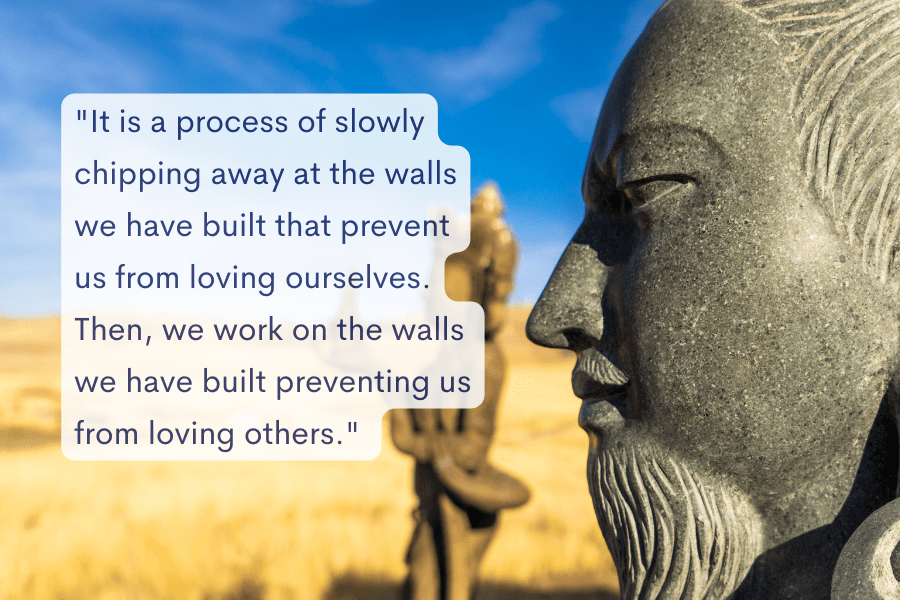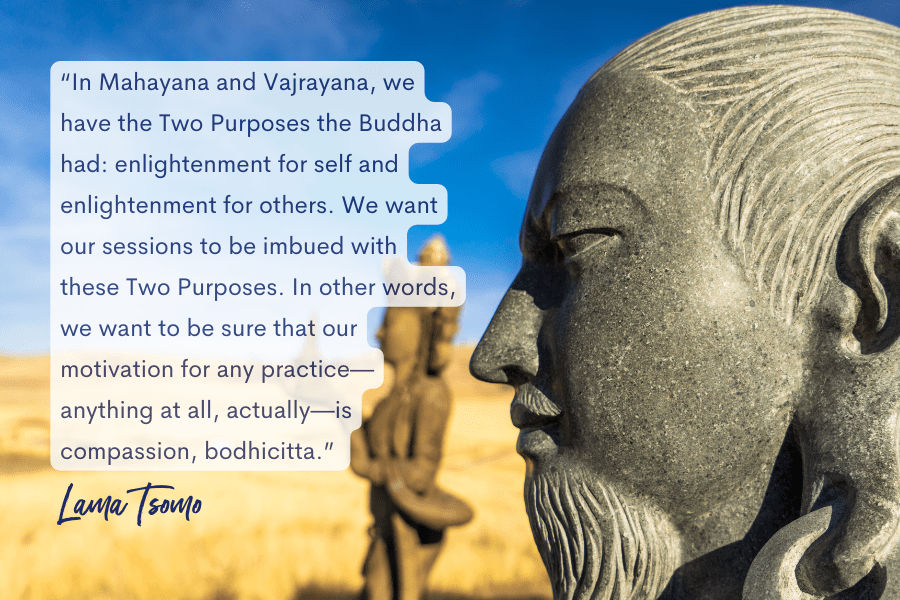Extending compassion to yourself can be difficult. Most likely, at some point in life you’ve received the message that you were not worthy of love, or that once you achieve perfection, only then would you be worthy of love. Fortunately, this equanimous love can be cultivated with practice, of course.
Why do we need self-compassion?
Meditation carries a wide range of benefits, including easing suffering, discovering happiness, and living more compassionately. Self-compassion is the beginning of this — when you practice self-compassion, you have more capacity to carry love for yourself and others.
Here are some quick and small acts of compassion that you can practice with yourself:
1. Check in with yourself the way you would a friend
It’s as easy as asking yourself, “Hey, how are you doing? How are you feeling?” While it may seem silly to take a moment and ask yourself those same questions that you ask others, it is an important way to check in. A body scan may be just the right exercise to become more present to what is happening in your body.
2. Practice Loving Kindness
First, let’s clarify that there’s a difference between loving yourself and just plain selfishness. These two get confused for each other all the time. But universal love for all beings, including yourself, is radically different from selfishness (i.e., looking out for Number One.) After all, our love for ourselves has to be the basis for powerful love for everyone else. Hence the famous maxim, “Love thy neighbor as thyself.”

The first step in this meditation is to imagine that you’re in front of yourself or inside of your heart. If envisioning yourself becomes a barrier, start by picturing a loved one, and then ease into envisioning yourself. Envelop yourself or your loved one in warm, strong feelings of love. Sometimes, it’s hard to find the way to self-love, so it’s okay to feel uncomfortable at the start.
Envision yourself as a child. What would you want for that child? To be happy? If you can wish happiness for your child-self, why not wish it for your adult-self now?
Think of someone you love. Are they perfect? Most likely not, yet you love and wish them happiness anyway. You can grow the capacity to give that same Loving Kindness to yourself.
Imagine wrapping yourself or your child-self in a warm embrace. At the same time, let the love and warmth of that hug move through your body. Settle into your embrace and say this, or something along these lines:
“May you be happy.
May you be well.
May you be safe.
May you be peaceful and at ease.”
Repeat that as many times as you like. But why leave it at words? Let’s bring in image and feeling! You might imagine wrapping your arms around yourself (and later others) in a warm hug. Savor that feeling.
Once you feel a healthy love for yourself, follow the same practice for a loved one. See them clearly, embrace them, then repeat the above sentences or your own versions of them. Feel free to be creative. Keep going until you feel love, like waves rolling out to that person. Hint: This will be easier if you first take in Loving Kindness for yourself.
Send your love to entire classes of beings. All children. Everyone who’s giving birth. All chipmunks! Whomever you can imagine! There is an enormous world of sentient beings around you. There’s no need to limit Loving Kindness. It’s called an “Immeasurable” quality for a reason! Send it out until you feel that everyone in this wide world has been touched by your strong tide of Love. Then savor.
Join Lama Tsomo in this Seven-minute Loving Kindness (Metta) Practice.
If you’re feeling scattered and want to work on focusing first, try this Round Robin of Shamata, Body Scan, Loving Kindness and an Equanimity Practice.
3. Find your altruistic intention and make time to meditate
“There’s an inherent benefit for yourself when you develop this compassion for others. Compassion means to wish for the freedom of suffering. If you want to free yourself from suffering, you do that by applying yourself in these meditative techniques. If you’re just thinking about yourself, it isn’t going to free you from suffering.” Khen Rinpoche
When you set a wholesome intention for your practice, like cultivating compassion for self and others, you create a wholesome path for yourself. When you lose motivation to practice, you can return to your altruistic intention.

Visit our Guided Meditations page HERE for more Compassion-based meditations. If you’d like to practice with us in-person or online, check out or upcoming events HERE.
